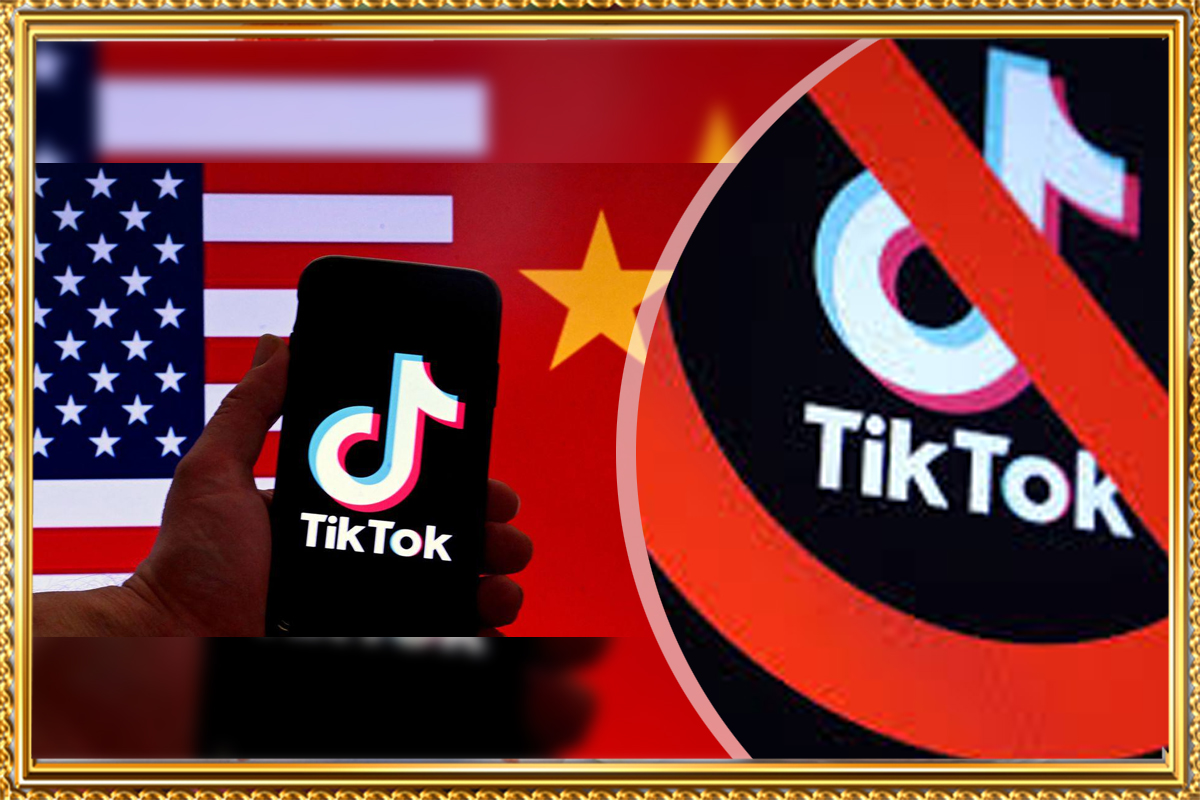TikTok Ban News: The U.S.-China TikTok Debate: What’s at Stake?

A comprehensive analysis of the TikTok ban debate in the United States. This blog explores the reasons, implications, and global impact of banning TikTok, focusing on U.S.-China relations, data privacy concerns, and the app’s influence on society. Learn about the positive and negative aspects, and the potential outcomes of this contentious issue.
In recent years, TikTok, the wildly popular short-video platform, has been at the center of a heated debate in the United States. As tensions between the U.S. and China intensify, questions about data security, national sovereignty, and the app's influence on its massive user base have dominated headlines. But is banning TikTok the right move? And what would it mean for users, U.S.-China relations, and the global tech landscape? This blog delves into the multifaceted aspects of the TikTok ban debate, presenting both sides of the argument and shedding light on its broader implications.
Broader Context of U.S.-China Relations
Reasons Behind the Proposed TikTok Ban
Impacts on Innovation
Regulatory Challenges
Cultural and Social Influence
Alternative Solutions
Positive Aspects of Banning TikTok
Negative Aspects of Banning TikTok
FAQs
CONCLUSION
Broader Context of U.S.-China Relations
- Technological Rivalry: TikTok’s ban fits within a larger narrative of the U.S. and China competing for technological dominance, with 5G, artificial intelligence, and quantum computing as other contested arenas.
- Economic Implications: The debate is emblematic of the broader trade war and the decoupling of the two largest economies, affecting global supply chains and tech ecosystems.
- Diplomatic Fallout: A ban could escalate tensions, leading to retaliatory measures by China, such as targeting U.S. firms operating within its borders.

Reasons Behind the Proposed TikTok Ban
- Data Privacy Concerns: The primary concern driving the push for a TikTok ban is the potential misuse of user data. TikTok's parent company, ByteDance, is based in China, raising fears that the Chinese government could compel the company to hand over American user data. Such concerns are rooted in China's 2017 National Intelligence Law, which obliges companies to cooperate with state intelligence work.
- National Security Risks: Critics argue that TikTok could be used as a tool for espionage or propaganda. The app’s algorithm, which determines what content users see, has sparked fears about potential manipulation to influence public opinion or political processes in the U.S.
- Reciprocity Argument: Supporters of the ban highlight that American tech platforms like Facebook and Google are banned in China. They argue that a TikTok ban would create a level playing field and send a strong message about fair trade practices and digital sovereignty.
- Impact on Children and Teens: Another point of contention is TikTok’s influence on young users. Critics claim that the platform promotes addictive behavior, mental health issues, and inappropriate content, impacting childhood development and societal norms.
Impacts on Innovation
- Stifling Competition: Critics of the ban argue that removing a competitive foreign platform could reduce pressure on U.S. tech companies to innovate, leading to stagnation.
- Loss of a Global Platform for Creators: TikTok enables content creators to reach a global audience, fostering creativity and cross-cultural exchange. A ban could limit these opportunities.
Regulatory Challenges
- Global Data Governance: The debate underscores the need for international agreements on data governance to address privacy and security concerns across borders.
- Setting a Precedent: If the U.S. bans TikTok, it could encourage other nations to restrict foreign platforms, fragmenting the internet into regional silos.
Cultural and Social Influence
- Shaping Trends and Movements: TikTok has become a hub for cultural trends, activism, and political discourse. A ban could disrupt its role as a platform for grassroots movements and societal change.
- Censorship Concerns: Critics warn that banning a platform due to its ownership might justify similar measures by authoritarian governments, undermining global internet freedom.
Alternative Solutions
- Localized Operations: Mandating TikTok to store U.S. user data within the country, monitored by third-party firms, could address privacy concerns without resorting to a ban.
- Regulatory Oversight: Implementing strict transparency requirements for algorithms and data practices could mitigate fears of manipulation and espionage.
Positive Aspects of Banning TikTok
- Enhanced Data Security: A ban could protect American users’ data from potential misuse, reducing risks of espionage or unauthorized access by foreign entities.
- National Sovereignty: Banning TikTok could reaffirm the U.S.’s commitment to protecting its digital borders and reducing dependence on foreign-owned platforms.
- Encouragement for Local Alternatives: The ban might pave the way for American tech companies to develop competitive platforms, boosting innovation and economic growth within the country.
Negative Aspects of Banning TikTok
- First Amendment Concerns: Critics argue that banning TikTok infringes on free speech and the right to access information, setting a dangerous precedent for internet censorship.
- Economic Impact: TikTok’s operations in the U.S. contribute significantly to the economy through job creation, advertising revenue, and influencer marketing. A ban could result in substantial economic losses.
- User Backlash: With millions of active users in the U.S., a ban could alienate young voters and consumers, potentially creating political and social backlash.
- Global Perception: A TikTok ban might be perceived as protectionism, potentially damaging the U.S.’s reputation as a champion of free markets and innovation.
FAQs
- Why does the U.S. government want to ban TikTok? The U.S. government’s concerns revolve around national security risks, data privacy issues, and potential manipulation by a foreign-owned platform.
- How is TikTok different from other social media platforms? TikTok’s algorithm is highly advanced and personalized, making it unique in its ability to keep users engaged. Its Chinese ownership differentiates it from most major U.S.-based platforms.
- Will banning TikTok prevent China from accessing American data? While a ban could reduce direct access, experts argue that data privacy concerns extend beyond TikTok and require broader regulatory measures.
- What alternatives do users have if TikTok is banned? Users may migrate to platforms like Instagram Reels, YouTube Shorts, or smaller, emerging platforms. However, none fully replicate TikTok’s user experience.
- Could TikTok sell its U.S. operations to avoid a ban? Yes, selling its U.S. operations to an American company has been proposed as a compromise to address security concerns.
Conclusion
The debate over banning TikTok in the U.S. highlights the complex intersection of technology, politics, and society. While concerns about data security and national sovereignty are valid, a ban comes with significant trade-offs, including economic repercussions, freedom of expression issues, and potential geopolitical fallout.

Rather than an outright ban, a balanced approach involving stringent regulations, transparency measures, and collaboration with international partners could address key concerns while preserving the platform’s benefits. The TikTok debate serves as a reminder of the need for robust digital governance in an increasingly interconnected world.














Post a comment